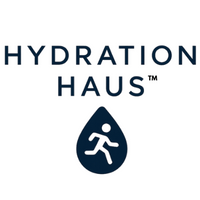Why Hydration Matters More Than You Think
Staying hydrated is a simple yet critical part of maintaining good health. But many South Africans, like people around the world, aren’t getting the fluids they need each day. Research shows a significant number of South Africans may be underhydrated due to busy lifestyles, lack of awareness, or limited access to clean drinking water in certain regions. Dehydration is a growing concern—especially in hotter climates and among vulnerable communities.
As we age, drinking enough water is even more important. Dehydration is common among older adults, occurring in up to 28% of this population. Adults 60 and older are at greater risk for dehydration for a number of reasons, including natural drops in thirst levels and body composition changes. Older adults are also more likely to take diuretics and other medications that cause fluid loss in the body.
Here’s how hydration benefits your body:
Improved Brain Performance
Even mild dehydration—as little as 2% fluid loss—can affect memory, mood, concentration, and reaction time.
Digestive Harmony
Water aids in breaking down soluble fiber and supports digestion, helping prevent discomforts like constipation or bloating.
More Energy
Without proper hydration, your heart works harder to pump oxygen, making you feel tired and sluggish.
Weight Management
Water provides a sense of fullness and helps boost metabolism. Studies show water before meals may support weight loss.
Decreased Joint Pain
Joint cartilage is 80% water. Hydration cushions joints and reduces aches.
Better Temperature Regulation
Water helps you sweat and cool down. Dehydration increases heat storage.
Kidney & Bladder Health
Hydration helps flush out bacteria and dilute minerals to prevent kidney stones.
Healthier Heart
Proper hydration supports blood flow and mineral balance for heart health.
Detoxification
Your body flushes waste through urine, sweat, and breath — all dependent on water.
Fewer Headaches
Even slight dehydration may trigger headaches or migraines.
What Happens to Your Body When You’re Dehydrated
Mild dehydration can lead to:
-
Headaches
-
Fatigue
-
Mood swings
-
Bad breath
-
Poor focus
-
Constipation
Did you know? A loss of just 1–2% of body fluid can reduce cognitive ability.
Hydration for Kids: What Parents Need to Know
Children are more vulnerable to dehydration. Their smaller bodies lose fluid faster and they often forget to drink.
Signs of dehydration in kids:
-
Dry lips
-
Dark yellow urine
-
Fewer toilet visits
-
Lethargy
Tips for parents:
-
Offer water regularly
-
Use fun bottles (like our Haus Mini!)
-
Infuse water with fruit
-
Create hydration routines
Your Quality of Drinking Water
Access to clean, safe drinking water isn't just a convenience—it's a foundation of health. But what exactly are you drinking, and how does its quality impact your hydration?
Tap vs Bottled Water
-
Tap Water in South Africa: Generally safe in major urban areas, with pH ranging from 6.5 to 8.5. However, taste and mineral content can vary by region. Some rural areas may experience intermittent issues with contamination or inconsistent treatment.
-
Bottled Water: Often filtered and tested more consistently. Brands must comply with national safety standards, and many offer pH-balanced or mineral-enhanced options. Ideal when traveling or in areas with questionable tap water quality.
pH Levels in Water
Water's pH can affect taste and long-term health:
-
Neutral (7.0): Balanced, safe for regular consumption
-
Alkaline (7.5–8.5): Thought to neutralize acid in the body, support digestion
-
Acidic (Below 7): Not harmful short-term, but less ideal over time
What’s Common in South Africa?
-
Most municipal tap water falls within the neutral-to-alkaline range.
-
Filtering tap water at home can help remove micro-particles, chlorine taste, and sediments while preserving beneficial minerals.
Water Quality Around the World
-
Best Quality Sources: Switzerland, Iceland, and Norway — water flows from glacial and mountain sources, naturally filtered and rich in minerals.
-
Fun Fact: Singapore’s NEWater system recycles and purifies wastewater into drinking water that exceeds World Health Organization standards.
Infographic Tip 💡
Consider including a visual comparison chart:
| Country | Avg pH Level | Water Source |
|---|---|---|
| South Africa | 6.5–8.5 | Municipal (Tap) |
| Iceland | 8.5+ | Glacial springs |
| USA (varies) | 6.5–8.5 | Rivers, reservoirs |
Pro Tips for Families:
-
Install a filter at home if you're sensitive to taste or mineral buildup.
-
Let water run for a few seconds before filling your bottle if it's been sitting in the pipes.
-
Check your municipality’s water quality report if you're unsure about what’s coming out of the tap.
Hydration begins with quality. Clean, balanced water ensures your body absorbs fluids effectively — making every sip count.
Can You Drink Too Much Water?
Yes — though rare, overhydration (hyponatremia) happens when sodium levels in the blood drop too low.
Symptoms include:
-
Confusion
-
Headache
-
Nausea
-
Swelling or seizures
Stick to 6–8 glasses of water a day unless your doctor advises more.
5 Simple Hydration Habits That Stick
-
Drink water before your morning coffee
-
Keep a bottle nearby — at work, in your bag, on your nightstand
-
Infuse water with fruit or herbs
-
Link water to habits (after brushing teeth, during meals)
-
Track water intake with an app or journal
“Make water a rhythm, not a rule.”
Sources
-
https://www.ncoa.org/article/10-reasons-why-hydration-is-important/
-
https://www.medicalnewstoday.com/articles/290814#15-benefits
